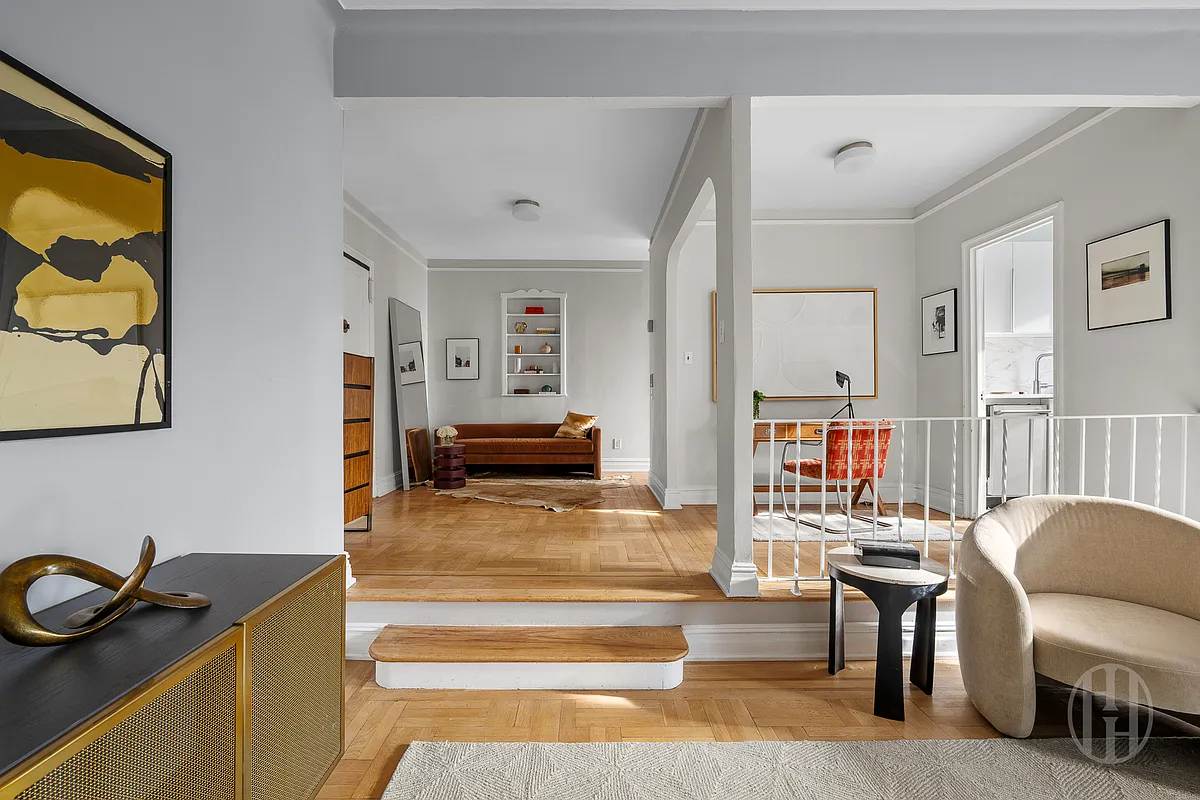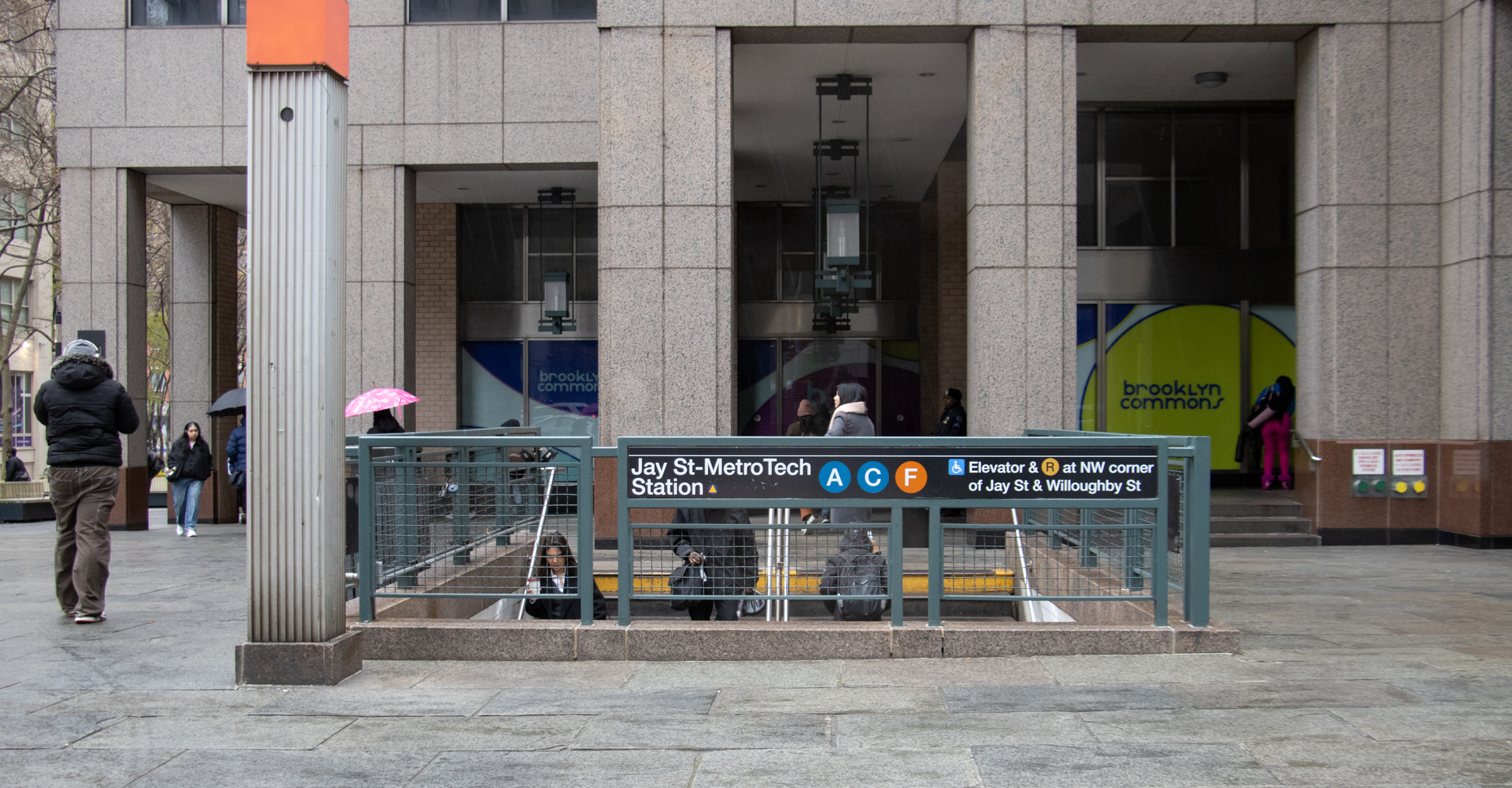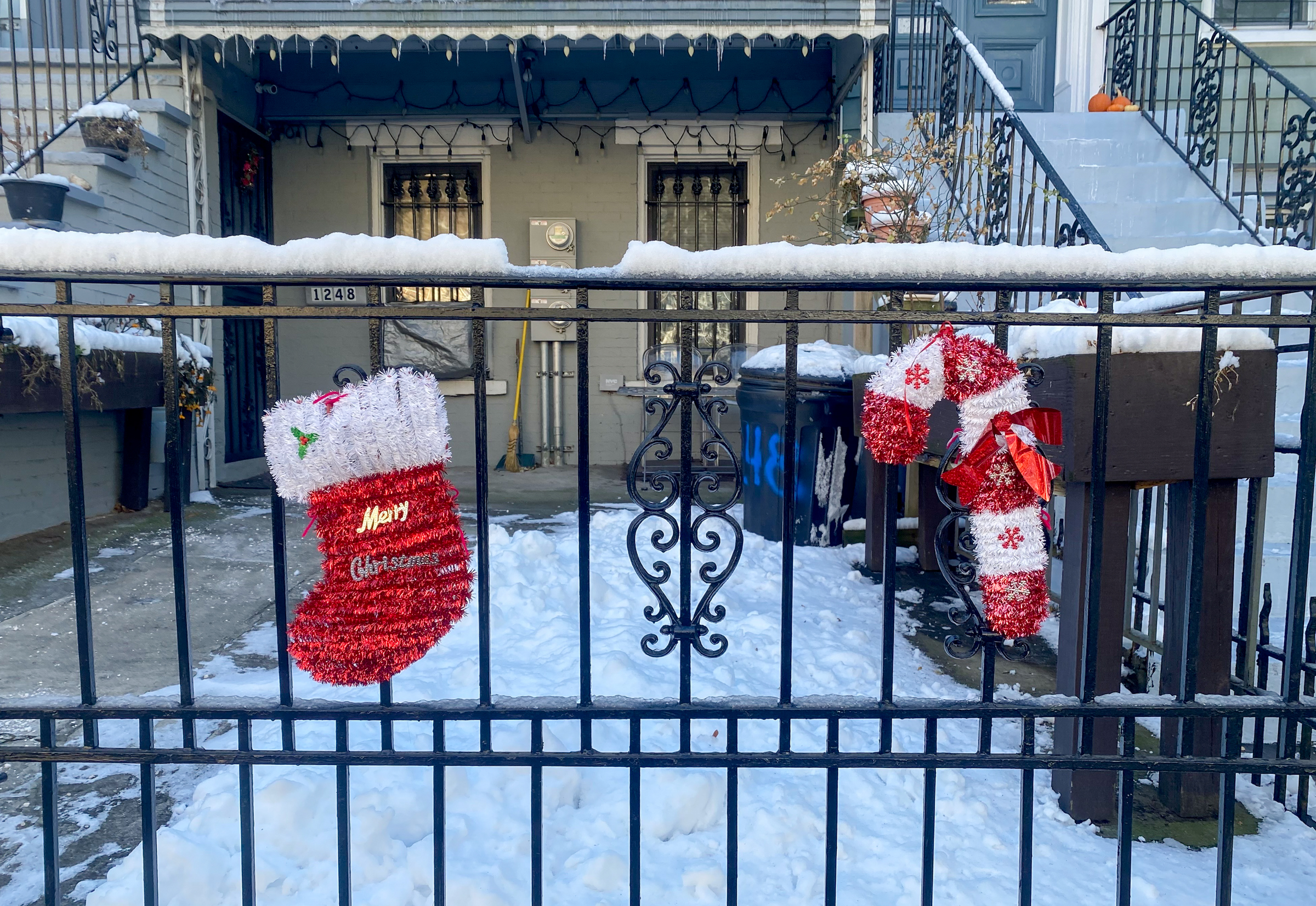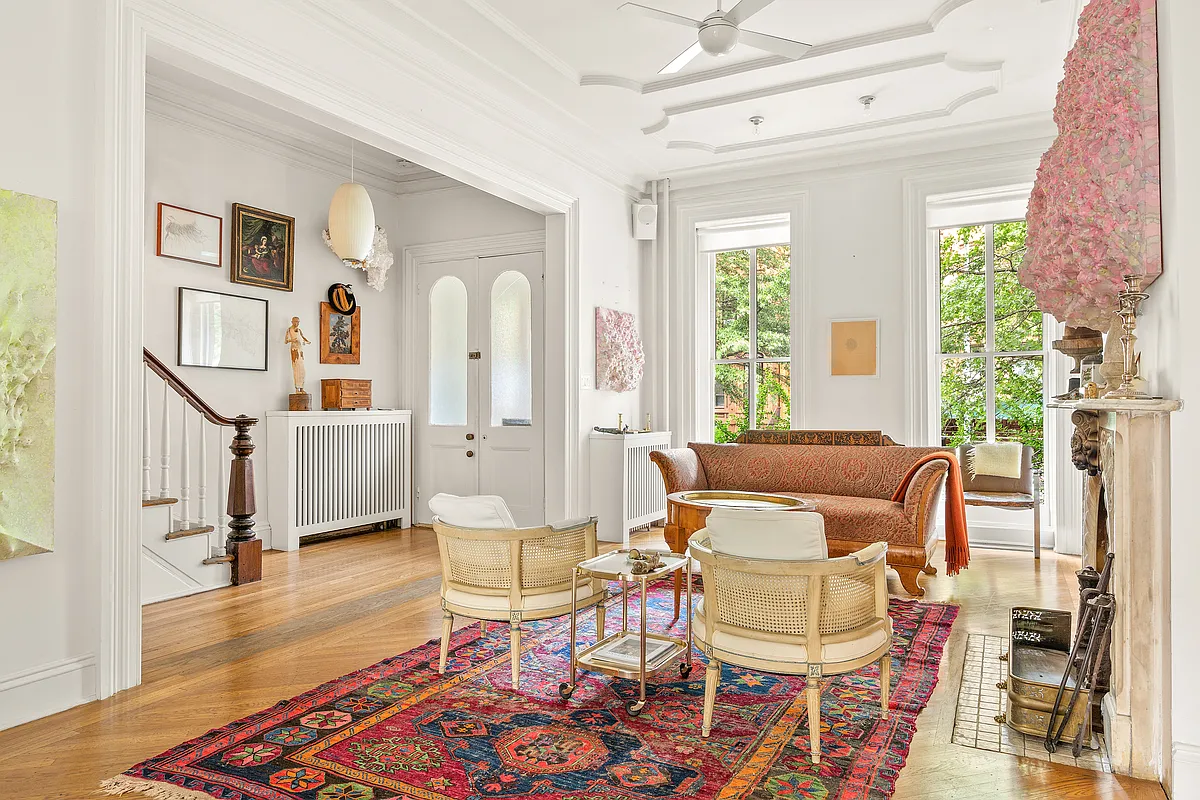380 Degraw In Contract, Blue Rooms and All
We gave the owners of 380 Degraw Street in Cobble Hill a lot of grief for their choice in paint color, but it looks like it didn’t stand in the way of finding a buyer: According to the BHS website, the $2,645,000 listing is now in contract. Any little birdies out there know the final…


We gave the owners of 380 Degraw Street in Cobble Hill a lot of grief for their choice in paint color, but it looks like it didn’t stand in the way of finding a buyer: According to the BHS website, the $2,645,000 listing is now in contract. Any little birdies out there know the final price? (BTW, the photo above predates the new cornice that the owner added before putting the house on the market.)
380 Degraw Street [Brown Harris Stevens] GMAP P*Shark
House of the Day: 380 Degraw Street [Brownstoner]
Photo by Kate Leonova for Property Shark





Actually, the only people trading up to houses at the $2 million mark are those from Manhattan. The price of townhouses is so high that the only thing you can do is sell an expensive coop in Brooklyn Heights, Cobble Hill, etc., and buy a Bed Stuy Brownstone. No one who is buying a $2 million brownstone in an already established neighborhood can be selling anything other than another brownstone in that neighborhood, or paying an additional $1 million mortgage.
No one ever mentions it, which seems strange but perhaps reflects the demographic on this blog, but many buyers are not first time buyers, but are brooklyn locals selling their houses to buy bigger ones or change neighbourhood, as their circumstances change. This happens in all normal markets — its called trading up. You don’t have to have a 7 figure salary to afford a big price tag, if your own place is within 500k — you’re just leveraging the equity that you have in your existing house (which has for instance accumulated over the last 5-10 years) to buy a different place. People move rentals as their circumstances change, and they do with houses … Ok some people buy a place and think that’s their house for life, but that’s not everyone’s outlook….
Anon 6:09 hits the nail on the head. I wouldn’t sell one of these brownstones even if prices were double what they are now (even if I had one to sell, which I don’t)… but I wouldn’t buy one for these prices either.
Not saying my personal judgments and valuations should speak for everybody, but the very fact of that gap – that I would neither sell nor buy at these prices – suggests that something is out of whack. And what I think that is (though I could of course be wrong) is the large number of buyers with very deep pockets who don’t even try to resist upward price pressure because they don’t have to.
I.e. buying at a premium is a luxury. Which means that, at these prices, the only buyers right now are luxury buyers. Which strikes me as not being very good for the market itself, and not (necessarily) very good for the neighborhoods. (E.g. what happens to PS 261 when the only students come from the Gowanus Houses, because all the rich Boerum Hill newcomers send their kids to private school? The school goes downhill, as you get less diversity and more racial and socioeconomic stratification.
Of course a distinct possibility is that the market will remain stable while prices keep going through the stratosphere. It will begin to look like Manhattan’s, or, for a more pronounced example, London’s. I can’t predict the future, I’m just someone who’s been priced out of his own neighborhood by the kind of people who used to live in Manhattan (and ironically, who I would always tell to come check out Brooklyn) and wants to vent about it.
Stop with the rich and famous in my
nabe. The only true celebrity in Bh.
is Norman Mailer, been here since the fifties. He paid around fifty grand for
his house.
New York coops, make you have three
times the asking price in the bank.
Now that is rich. Not needing a mortgage
on an eight million dollar property, that is well off.
Putting all your cash into a house and
needing the rental to keep you afloat
isn’t affluent, it’s optimistic.
If you want to know the price of a house,
you have a much better chance of getting
the real price once the deed is registered. Everything else is just
rumors, conjecture. I’ve had houses on the market for four, five months, you know
problematic houses, but they sell. There
is always someone for every property.
Comparing a house on Columbia Street to
a house next to the Degraw project is lunacy.
There are only so many people from
elsewhere who still have real estate profits to invest. No the market won’t hold, prices are going down in Manhattan.
This is a spot market. Know your numbers.
I don’t think that house will appraise for
2.5M I don’t. I see more deals going south
because of the gap between price and appraised value.
Anon 3:24pm, you are missing the point — whoa doesn’t want to sell, he wants to live here. And, he’s simply pointing out that he wants SOME (not ALL) people as neighbors that aren’t the very rarified group of people that can afford $2 million homes. He’s not criticizing anyone who is selling for the amount, just expressing worry that this seems to be the market rate these days, and it means that lots of people with regular paying jobs(or even high paying, just not super – rich) who might stabilize the market in downturn can no longer afford to live here.
So here’s what I would suggest, whoa. Sell your home for 1 million, out of courtesy to this not-so-rich group of people, who you imply are somehow preferable. Don’t make hundreds of percent in profit, just make 20% profit. Or 30%. Or whatever it would be if you sold it for 60% less than your neighbor.
The thing is, not-so-rich people, whether it be out of desperation, greed, or just common sense, are selling their homes for the rate at which they are being bought. You have a problem with this because (it seems from these posts) that you fear for the well-being of the community . . . or the rich people who are overpaying . . . or something, I can’t really tell.
Anyway, put your money where your mouth is and DON’T sell to the rich. Sell to the not-so-rich. Who, by the way, are often the not-yet-rich.
For the record, I grew up in Brooklyn in the 70s and 80s and 90s. This has nothing to do with wanting to gate off a community… just the opposite. Everyone who moves into Brooklyn (NW Brooklyn anyway) seems to be a multimillionaire. They’re turning Brooklyn into a gated community.
I LOVE that more people are recognizing that Brooklyn is a great place – I’ve been saying it to my Manhattan-centric friends for decades, and now the world finally seems to agree with me. But read the last six posts… the economics don’t seemt to work anymore. There only seems to be one kind of buyer in Brooklyn these days: people with lots and lots and lots of cash to burn. People aren’t buying for value, they’re buying because they can. Like the example above: a double-duplex where each is worth about $3K in rent. Buyers now figure they’ll rent one for that $3K and live in the other, paying $6K out of pocket, even though that’s double the actual monthly value of the place. Not because it makes sense in the short-term, or even because it’s a good investment in the long-term; but because they can.
We’re now five years into the most extreme economic upturn New York has ever seen. There are more people simply awash in money then ever before. The local economy hasn’t corrected, even a little bit, since 9/11. What if it does? What if interest rates go up? What if the crime rate goes up? What if the dollar increases relative to the Euro and foreign investors go back to the sidelines? What if the national housing slump starts to affect the local market (the suburbs are getting very cheap these days and there are a lot of people in Brooklyn who stand to gain a lot if they cash out of this market)? What if any or all of these things happen just as thousands and thousands of new housing units become available?
I want some not-so-rich people as my neighbors, people who buy for value and for community. Partly because they make the community better, and partly because they provide stability to the market when the buyers of housing-as-luxury-item or housing-as-investment-on-margin dry up.